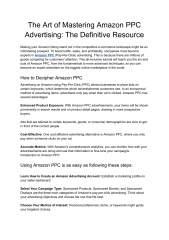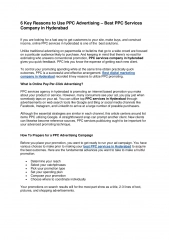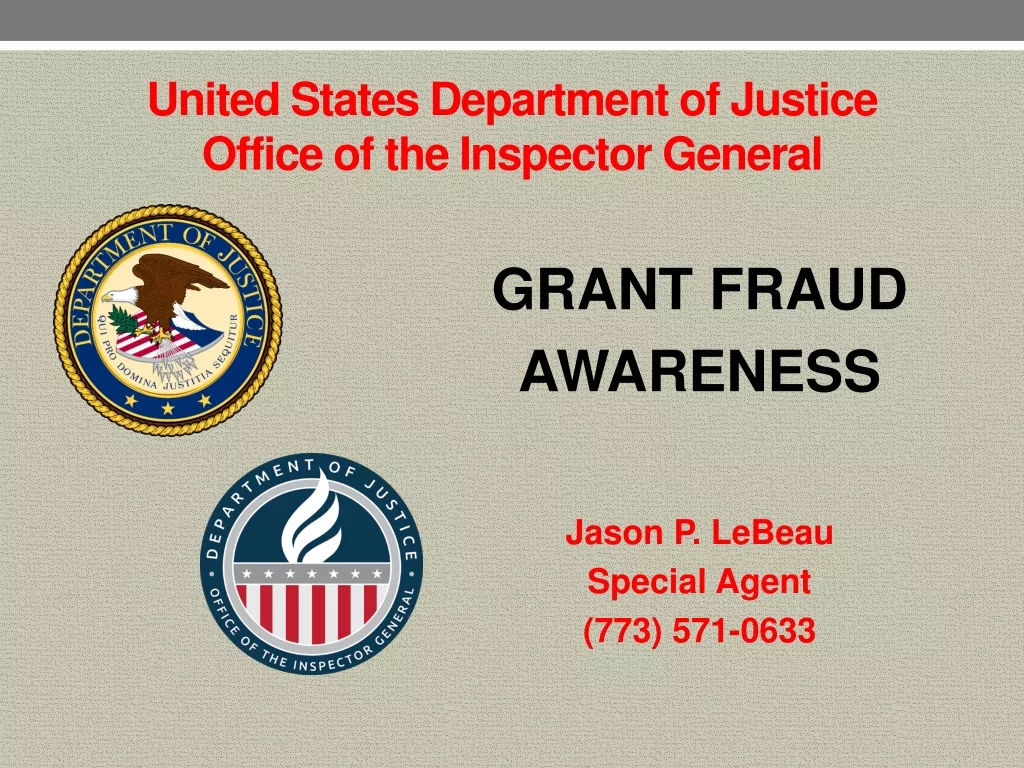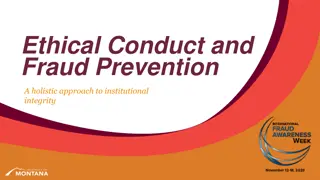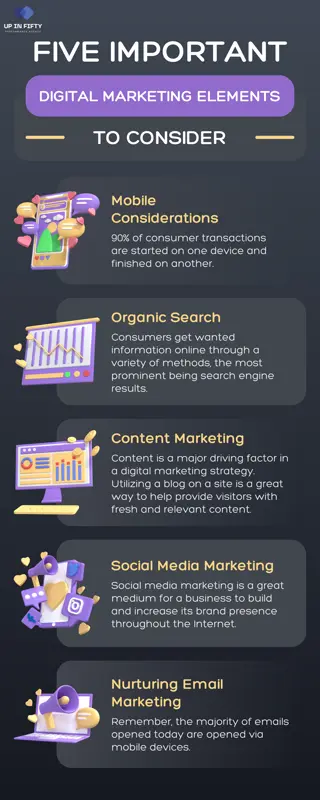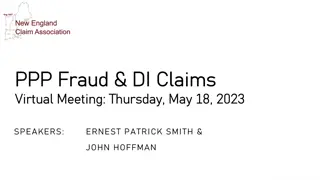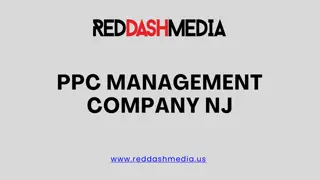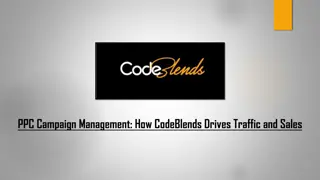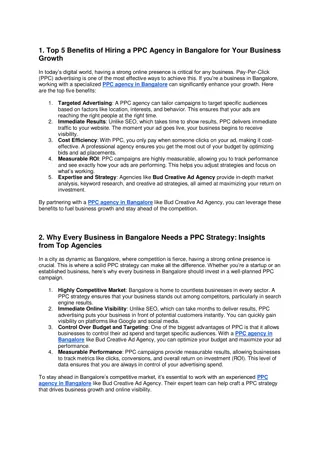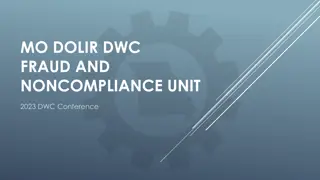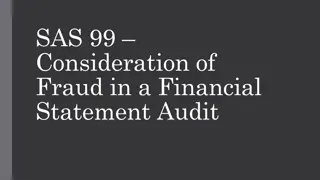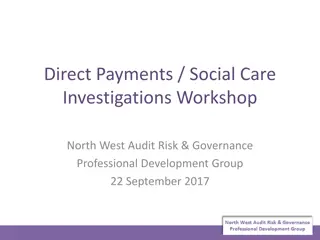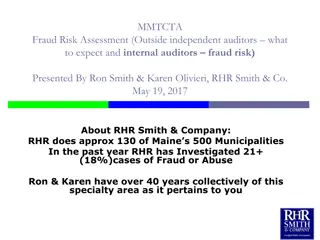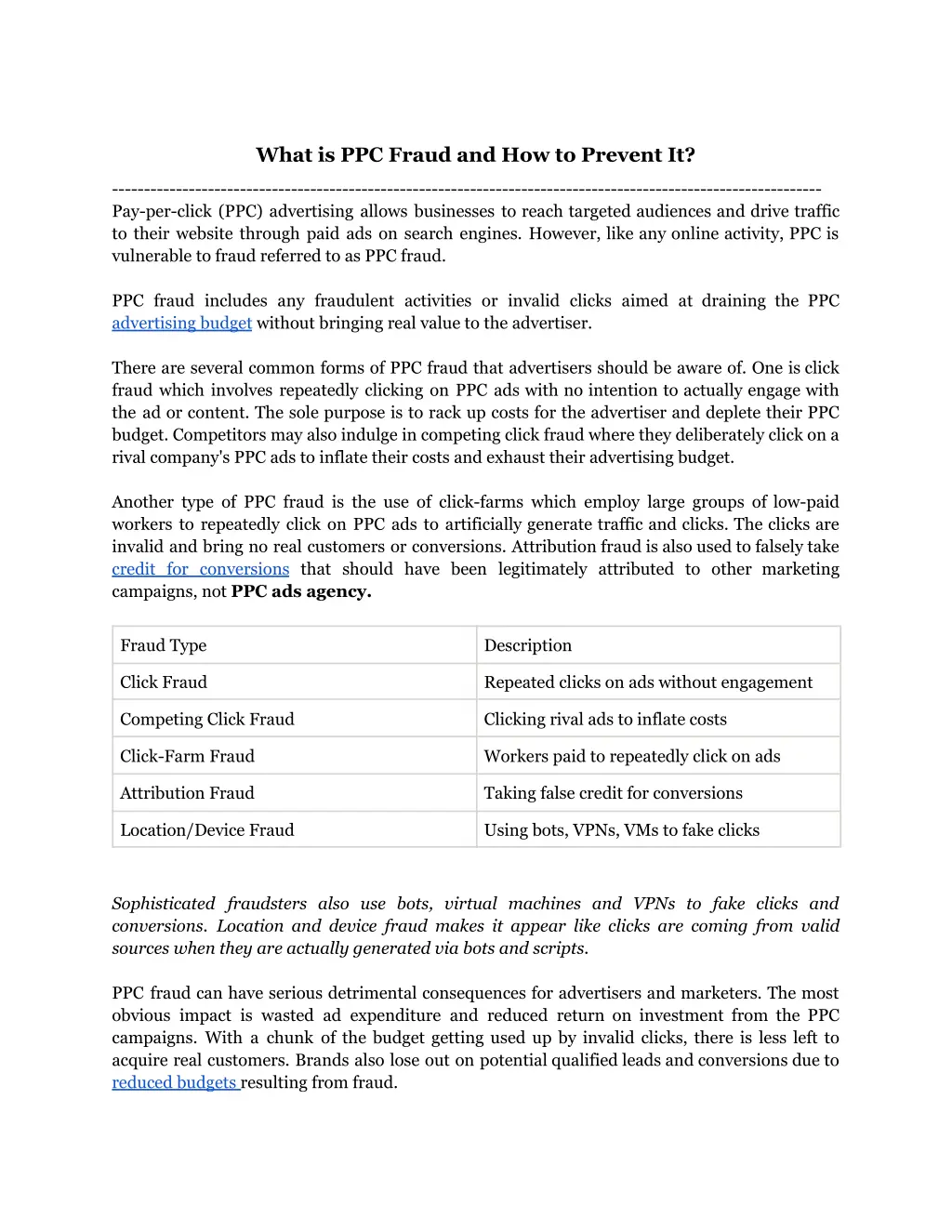
What is PPC Fraud and How to Prevent It
Pay-per-click (PPC) advertising budgets are vulnerable to fraudulent clicks from bots, fake conversions, click farms and other invalid activity. Advertisers can suffer consequences like wasted ad expenditure, loss of leads, distorted analytics, and reduced campaign reach. Mitigate PPC fraud by monitoring for suspicious click patterns, analyzing conversion rate discrepancies, utilizing negative keywords, blacklistings IPs, restricting targeting, deploying AI for detection, vetting ad networks, inspecting landing page behavior, and partnering with experienced PPC ads agency.
Download Presentation

Please find below an Image/Link to download the presentation.
The content on the website is provided AS IS for your information and personal use only. It may not be sold, licensed, or shared on other websites without obtaining consent from the author. If you encounter any issues during the download, it is possible that the publisher has removed the file from their server.
You are allowed to download the files provided on this website for personal or commercial use, subject to the condition that they are used lawfully. All files are the property of their respective owners.
The content on the website is provided AS IS for your information and personal use only. It may not be sold, licensed, or shared on other websites without obtaining consent from the author.
E N D
Presentation Transcript
What is PPC Fraud and How to Prevent It? --------------------------------------------------------------------------------------------------------------- Pay-per-click (PPC) advertising allows businesses to reach targeted audiences and drive traffic to their website through paid ads on search engines. However, like any online activity, PPC is vulnerable to fraud referred to as PPC fraud. PPC fraud includes any fraudulent activities or invalid clicks aimed at draining the PPC advertising budget without bringing real value to the advertiser. There are several common forms of PPC fraud that advertisers should be aware of. One is click fraud which involves repeatedly clicking on PPC ads with no intention to actually engage with the ad or content. The sole purpose is to rack up costs for the advertiser and deplete their PPC budget. Competitors may also indulge in competing click fraud where they deliberately click on a rival company's PPC ads to inflate their costs and exhaust their advertising budget. Another type of PPC fraud is the use of click-farms which employ large groups of low-paid workers to repeatedly click on PPC ads to artificially generate traffic and clicks. The clicks are invalid and bring no real customers or conversions. Attribution fraud is also used to falsely take credit for conversions that should have been legitimately attributed to other marketing campaigns, not PPC ads agency. Fraud Type Description Click Fraud Repeated clicks on ads without engagement Competing Click Fraud Clicking rival ads to inflate costs Click-Farm Fraud Workers paid to repeatedly click on ads Attribution Fraud Taking false credit for conversions Location/Device Fraud Using bots, VPNs, VMs to fake clicks Sophisticated fraudsters also use bots, virtual machines and VPNs to fake clicks and conversions. Location and device fraud makes it appear like clicks are coming from valid sources when they are actually generated via bots and scripts. PPC fraud can have serious detrimental consequences for advertisers and marketers. The most obvious impact is wasted ad expenditure and reduced return on investment from the PPC campaigns. With a chunk of the budget getting used up by invalid clicks, there is less left to acquire real customers. Brands also lose out on potential qualified leads and conversions due to reduced budgets resulting from fraud.
Analytics and performance data get distorted due to the fake and fraudulent activity, preventing advertisers from gauging the true effectiveness of their campaigns. Low-quality scores also result from high levels of irrelevant clicks, further impacting campaign performance and increasing costs. Ultimately, the brand loses audience reach and fails to achieve its customer acquisition goals through google search ad agency. However, with vigilance and smart preventive techniques, advertisers can tackle PPC fraud effectively. Here are some best practices to detect fraud and prevent wasted ad spending: Closely Monitoring Click Patterns and Quality It is critical to carefully analyze click patterns and behaviors to catch any abnormal or suspicious activity. Unusually large spikes in volume of clicks or sudden surges in clicks should warrant further inspection. The timing of clicks is another signal - even high-performing PPC ads are unlikely to see too much totally random activity at odd hours. Advertisers should check click sources to identify any repetitive or unusual IP addresses that may point to bots or click farms. Any PPC ads agency provides data and analytics to enable deep inspection of clicks and detect patterns that suggest invalid activity. Comparing Conversion Rates Over Time A massive volume of clicks but very few conversions is a red flag for potential click fraud. Advertisers should regularly compare click-through rates and conversion rates over recent periods to identify any inexplicable differences or discrepancies. An upward swing in clicks but steady or declining conversion rates likely means invalid clicks are occurring. Using Negative Keywords Negative keywords help filter out irrelevant clicks and impressions from bots, spiders and other automated tools. Any digital marketing agency should strategically use negative keywords like free , work from home , money making and others to target their PPC ads precisely. This improves campaign relevancy by blocking bogus clicks on commonly broad-matched terms. Blacklisting Suspicious IPs Once potentially fraudulent IP addresses are identified via click patterns, advertisers can blacklist them to prevent repeat offenses. Major PPC platforms like Google Ads provide an IP exclusion feature to block fraudulent clicks from blacklisted IPs. But care should be taken to ensure valid users are not incorrectly blocked. Restricting Targeting
Tightly defining target locations, devices, remarketing lists etc. also makes it harder for fraudsters to manipulate PPC campaigns. Avoiding broad match keywords and restricting targeting ensures ads display for only relevant searches by real users. Geotargeting also helps reduce chances of international click fraud. Leveraging AI and ML Cutting-edge artificial intelligence and machine learning algorithms can efficiently detect click fraud at enormous scale. The automated nature of bots leaves behind patterns that sophisticated AI tools can identify. Any google ads marketing agency should work only with platforms that utilize robust AI capabilities to supplement human analysis. Partnering with Reputable Ad Networks Sticking to high-quality ad networks with solid reputations minimizes risk of click fraud. Advertisers should thoroughly vet networks and avoid obscure players promising lots of traffic at low costs - higher risk of click farms and invalid activity. Google, Bing and major social media platforms are safer bets. Analyzing Landing Page Experience Analyzing landing page experience provides clues to bots versus real visitors. Bots don t browse websites naturally. Quickly bounced visits, erratic scroll patterns and lack of interaction are signs of bot activity. Advertisers should study visitor behavior on landing pages to identify shady clicks. Conclusion In summary, PPC fraud remains an evolving threat to advertisers as fraudsters devise ever-more sophisticated techniques. However, with vigilance, savvy targeting, strategic use of technology, and expert guidance, advertisers can stay on top of new fraud tactics and continue to drive ROI from PPC campaigns. As digital marketing evolves, any premium PPC ads agency like Consagous Technologies are ideal partners for brands to navigate the complexities of PPC advertising and thwart fraud. With cutting-edge tools and deep expertise, Consagous helps advertisers optimize PPC campaigns, enhance quality scores, identify suspicious patterns, and apply proven best practices for defeating PPC fraud. By leveraging Consagous' PPC advertising services, brands can focus on acquisition goals while experts handle fraud prevention and deliver real ROI. Contact us today for a free PPC campaign assessment and to discuss tailoring a fraud mitigation strategy.

